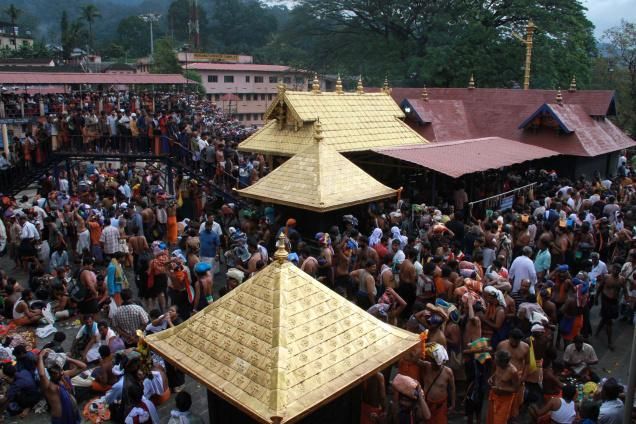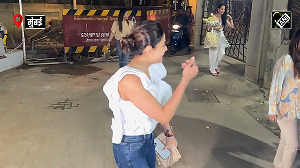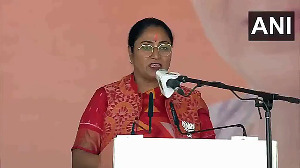
The Supreme Court on Friday referred to a constitution bench the contentious issue relating to the ban on entry of women between 10 to 50 years of age in Kerala's historic Sabarimala Temple.
A three-judge bench headed by Chief Justice Dipak Misra framed five "significant" questions to be dealt with by the constitution bench, including whether the practice of banning entry of women in the temple amounted to discrimination and violated their fundamental rights under the Constitution.
"Whether the exclusionary practice which is based upon a biological factor exclusive to the female gender amounts to 'discrimination' and thereby violates the very core of Articles 14, 15 and 17 and not protected by 'morality' as used in Articles 25 and 26 of the Constitution," the bench, also comprising Justices R Banumathi and Ashok Bhushan, framed as an issue to be decided by the constitution bench.
The management of the Sabarimala temple, located on a hilltop in the Western Ghats of Pathanamthitta district, had earlier told the apex court that the ban on entry of women aged between 10 and 50 years was because they cannot maintain "purity" on account of menstruation.
The second issue referred to the constitution bench is whether the practice of excluding such women constitutes an "essential religious practice" under Article 25 of the Constitution and whether a religious institution can assert a claim in that regard under the umbrella of right to manage its own affairs in the matters of religion.
The constitution bench would also deal with whether the Ayyappa Temple has a denominational character and "if so, is it permissible on the part of a 'religious denomination' managed by a statutory board and financed under Article 290-A of the Constitution out of Consolidated Fund of Kerala and Tamil Nadu to indulge in such practice violating constitutional principles/morality embedded in Articles 14, 15(3), 39(a) and 51-A(e)."
The bench also framed a question whether Rule 3 of Kerala Hindu Places of Public Worship (Authorisation of Entry) Rules permits 'religious denomination' to ban entry of women between the age of 10 to 50 years.
"And if so, would it not play foul of Articles 14 and 15 (3) of the Constitution by restricting entry of women on the ground of sex," it said.
Rule 3(b) of the Kerala Hindu Places of Public Worship (Authorisation of Entry) Rules, 1965 states that "women at such time during which they are not by custom and usage allowed to enter a place of public worship shall be included in the class of persons who shall not be entitled to offer worship in any place of worship."
The apex court also raised the question whether this rule is ultra vires the Kerala Hindu Places of Public Worship (Authorisation of Entry) Act, 1965 and, "if treated to be intra vires, whether it will be violative of the provisions of Part III of the Constitution."
The questions were framed after taking suggestions of the counsel of various parties and amicus curiae in the matter.
The court was hearing the petition filed by Indian Young Lawyers Association and others seeking to ensure entry of female devotees between the age group of 10 to 50 at the Lord Ayappa Temple at Sabarimala.
On November 7 last year, the Kerala government had informed the apex court that it favoured the entry of women of all age groups in the historic Sabarimala temple.
Initially, the LDF government had taken a progressive stand in 2007 by favouring women's entry into the temple, which was overturned by the Congress-led United Democratic Front dispensation later.
The UDF government had taken a view that it was against the entry of women of the age group of 10-to-50 years as such a practice was being followed since time immemorial.











 © 2025
© 2025